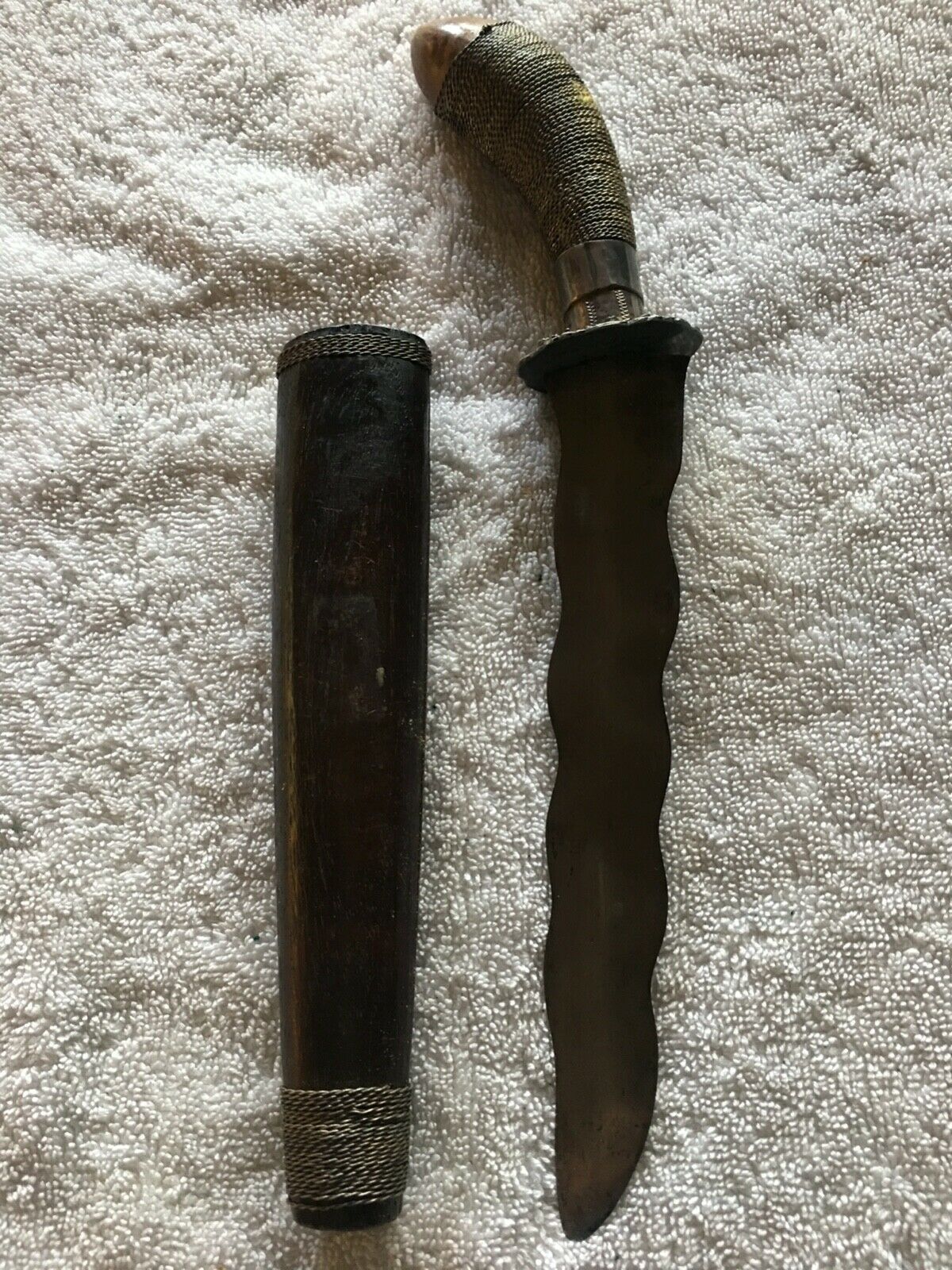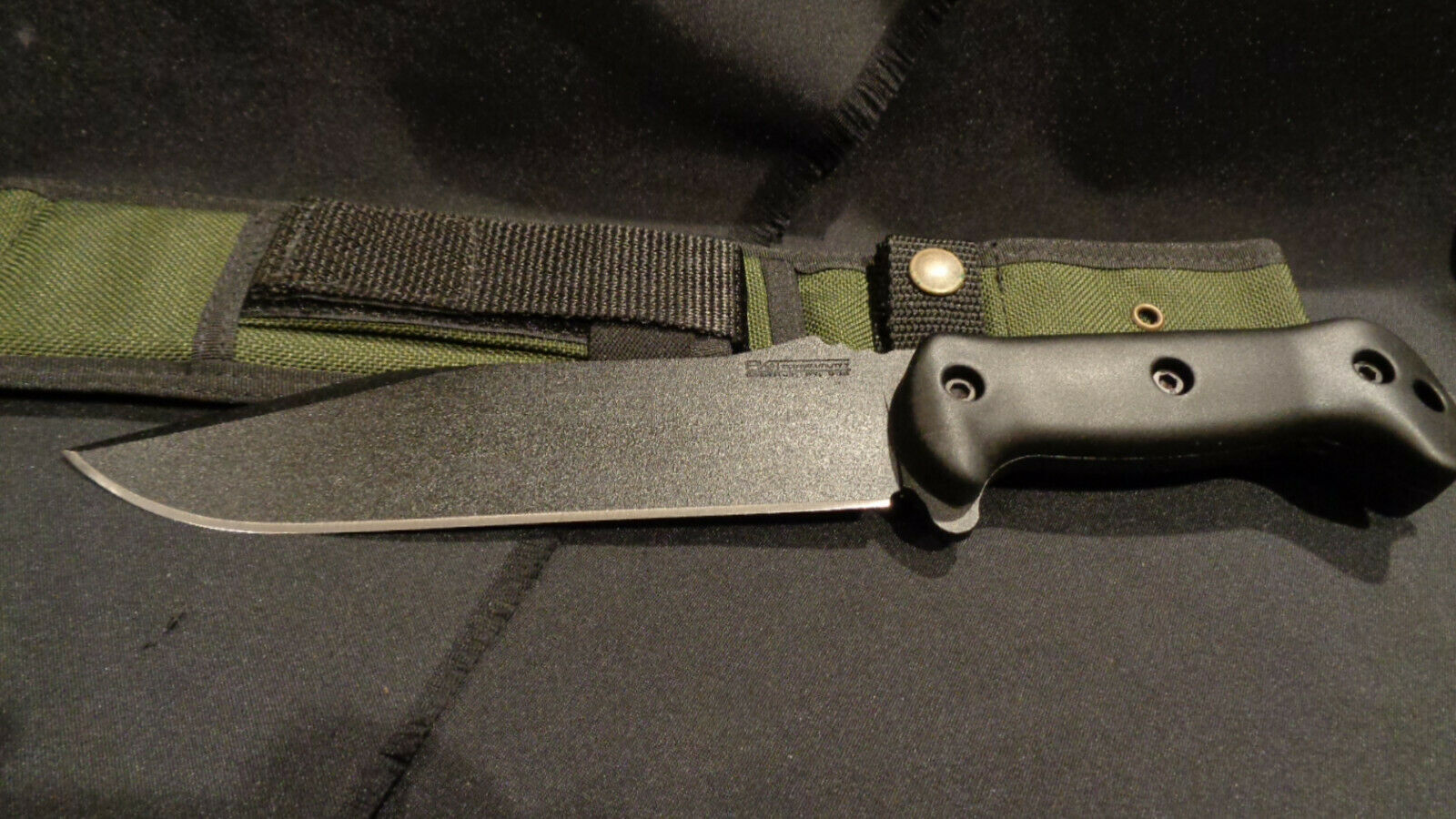-40%
Antique Islamic Moro Gunong Dagger, Jeweled Dagger with Wood-Metal Scabbard
$ 213.83
- Description
- Size Guide
Description
Antique Dagger Silver Roped Wood Hilt, Jeweled Guard & Wood-Silver Rope Scabbard. Condition is Used. Shipped with USPS Priority Mail.Blade is 7", Blade and Grip (handle) 10 1/2" overall, Scabbard 7", Weight of Dagger 5 1/2 oz, Weight of Everything overall 7 oz
The
kris
or
keris
[n 1]
in
Indonesian languages
, is an
Indonesian
asymmetrical dagger with distinctive blade-patterning achieved through alternating laminations of iron and nickelous iron (
pamor
).
[8]
The kris is famous for its distinctive wavy blade, although many have straight blades as well. Kris is also a symbol of power and of ethnic pride in most communities in
Southeast Asia
. Kris is also one of the
weapons
commonly used in
pencak silat
martial art, which is also native to the
region
.
Kris have been produced in many regions of
Indonesia
for centuries, but nowhere—although the island of
Bali
comes close—is the kris so embedded in a mutually-connected whole of ritual prescriptions and acts, ceremonies, mythical backgrounds and epic poetry as in
Central Java
.
[9]
As a result, in
Indonesia
the kris is commonly associated with
Javanese culture
, although other ethnicities are familiar with the weapon as part of their culture, such as the
Balinese
,
Sundanese
,
Malay
,
Madurese
,
Banjar
,
Buginese
, and
Makassar people
. Nowadays, kris is considered as a cultural masterpiece of
Indonesia
.
[2]
:266
A kris can be divided into three parts: blade (
bilah
or
wilah
), hilt (
hulu
), and sheath (
warangka
). These parts of the kris are objects of art, often carved in meticulous detail and made from various materials: metal, precious or rare types of wood, or gold or ivory. A kris's aesthetic value covers the
dhapur
(the form and design of the blade, with around 60 variants), the
pamor
(the pattern of metal alloy decoration on the blade, with around 250 variants), and
tangguh
referring to the age and origin of a kris.
[10]
Depending on the quality and historical value of the kris, it can fetch thousands of dollars or more.
Both a weapon and spiritual object, kris are often considered to have an essence or presence, considered to possess magical powers, with some blades possessing good luck and others possessing bad.
[10]
Kris are used for display, as
talismans
with magical powers, weapons, a sanctified heirloom (
pusaka
), auxiliary equipment for court soldiers, an accessory for ceremonial dress, an indicator of social status, a symbol of heroism, etc.
[10]
Legendary kris that possess supernatural power and extraordinary ability were mentioned in traditional folktales, such as those of Empu Gandring,
Taming Sari
, and Setan Kober.










